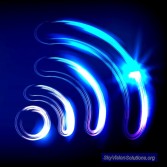A Message to Public Schools and Public Libraries about Wireless Devices
 Ronald M. Powell, Ph.D. [1] has recently distributed two documents related to health concerns about wireless devices. Although the technical content of each document is almost identical, one is intended as a message to Public Schools and the other is intended as a message to Public Libraries.
Ronald M. Powell, Ph.D. [1] has recently distributed two documents related to health concerns about wireless devices. Although the technical content of each document is almost identical, one is intended as a message to Public Schools and the other is intended as a message to Public Libraries.
From the introduction of the paper(s):
“Background: Wireless devices transmit information using radiofrequency/ microwave radiation. The international biomedical research community has been studying the impact of such radiation on biological systems for decades, but more intensely in recent years. The vast majority of the thousands of peer-reviewed research publications of this community, when funded independent of the wireless industries, are finding biological effects of concern. Further, these biological effects occur at levels of radiation far lower than earlier understood. Simply stated, a worldwide health crisis is emerging and is becoming a hallmark of the 21st Century. The international biomedical research community is trying to warn us; but, as a society, we are not yet listening. I hope that this message will help to change that.
As a scientist, I urge you to look into the health impact of the radiofrequency/ microwave radiation produced by wireless devices. Examples of wireless devices of concern in our environment are Wi-Fi in all of its forms; cell phones and cell towers [especially those located on school grounds]; cordless phones; wireless computers, whether desktop, laptop, or tablet models; wireless baby monitors; wireless smart electricity meters; emerging wireless smart appliances; and microwave ovens (which leak radiation).”
After describing a number of factors contributing to the emerging “worldwide health crisis,” Dr. Powell ends on a positive note with possible solutions:
“Fortunately, many of the services that wireless devices offer can be realized with much safer wired devices. The wired devices achieve connectivity with fiber-optic, coaxial, or Ethernet cables. The wired devices are faster, more reliable, and more cyber secure. They are, however, less mobile, often less convenient, and somewhat more expensive to install. But those drawbacks pale in comparison to the benefits of good health.
Simply stated, public schools [and libraries] can protect their staff, teachers, and students [and their customers] from the health risks posed by wireless devices, including Wi-Fi, by converting to safe wired connectivity, using shielded Ethernet cable. Further, students can be taught about the safe use of technology and can take home what they learn to protect their families.” [For libraries, “customers can learn from the libraries’ example of the safe use of technology and can take that information home to protect their families.”]
To download a complete copy of each document prepared by Dr. Powell that includes an extensive reference list, click on the links below:
Concerned members of the community may desire to help educate their local school officials and public library directors on the possible health effects of radiofrequency/ microwave radiation emitted by wireless devices. The above papers may help with that endeavor.
[1] Background for Ronald M. Powell, Ph.D.
Retired U.S. Government scientist (Ph.D., Applied Physics, Harvard University, 1975). During Government career, worked for the Executive Office of the President, the National Science Foundation, and the National Institute of Standards and Technology. For those organizations, respectively, Dr. Powell addressed Federal research and development program evaluation, energy policy research, and measurement development in support of the electronics and electrical-equipment industries and the biomedical research community. Dr. Powell currently interacts with other scientists and with physicians around the world on the impact of the environment – including the radiofrequency/ microwave environment – on human health.
No comments:
Post a Comment